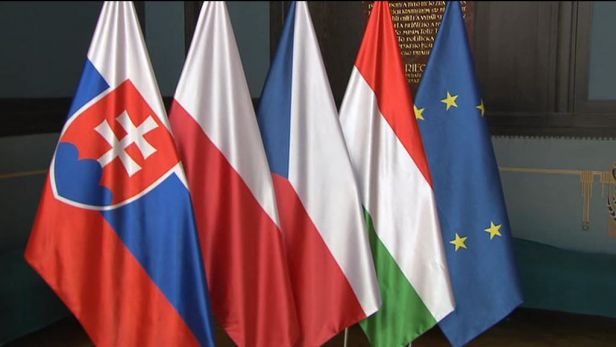By Raoul Weiss.
Hungary – The (very relative, but real) drop of the FIDESZ-KDNP government coalition in last Sunday’s local elections will, of course, be interpreted by the Hungarian opposition as a (starting) disavowal at the national level of Viktor Orbán’s policies.
On the one hand, nothing is more wrong. ACrushed at each vote since 2006, the Hungarian liberal Left, although totally united against Orbán, and despite a rather exotic pact with the former far-right party (and eternal party of extreme-opportunism) Jobbik, for the most part, has “reconquered” only Budapest. In the rest of the country – apart from some traditional fiefdoms of the Hungarian post-socialists, like Szeged – the Left remains far behind the government candidates, thus capping at a level that would never allow it to return to the government. The magic wand of dégagisme (the obsession for making someone leave his office, at any cost, ed.), while producing some effects, has shown its limits: playing on the divisions of a deeply divided society, it has been able to stabilize the positions of parties in the process of fossilization in the form of professional opposition, but has not been enough to upturn the table. In order to get back to power, the Hungarian opposition will first have to face the facts: faced with a fairly intelligent electorate (which it systematically underestimates), the hatred of FIDESZ is not enough to overcome the total absence of political project.
On the other hand, the government coalition would also be well advised to turn down its triumphalism of recent years, by drawing the political and socio-cultural lessons of this election. Belonging to the bourgeoisie and living for the most part in Budapest, the tenors of the coalition (especially those from the liberal FIDESZ of the 1990s) have indeed, over the past three years, gradually replaced the 2010 resistance speech by a strategy that can be summarized in two main axes:
- Stake everything on the migration card. The refusal of immigration, a feeling that brings together in Hungarian society a majority of opinion far beyond FIDESZ’s electoral base, is of course not a bad campaign theme. But in a country for which the negative effects of “multiculturalism” remain – if one compares it, for example, to France – a distant threat, as one could foresee, this theme ends up to be worn out.
- to trumpet the country’s economic successes, which are very real, and to present them (often justifiably) as successes of the governmental coalition. In some cases, this rhetoric of technocratic competitiveness (in tune with that of Babiš in Czechia) may pay off (as in Kecskemét, where the economic success of the local Mercedes factory is surely a factor in the electoral triumph of the FIDESZ Mayor), but this medal also has its reverse, and in particular:
- Recalling that Hungary is enriching herself, as this enrichment is accompanied (as always) by a deepening of inequalities, we turn the knife into a wound that, in many Hungarian “losers of the boom”, becomes purulent; in Budapest, the boom is reflected in particular by a spike in rental prices, naturally exploited in the opposition campaigns, which could only serve the candidature of Istvan Tarlos for his re-election;
- the economic boom, accompanied by a tourist boom, leads to an internationalization of Budapest, where the community of “expats” (massively close to the libertarian rhetoric and pseudo-ecologism of the opposition) becomes gradually a real electoral factor (hence the appearance of campaign messages in English); this factor has, in particular, played a tole in the election of Péter Niedermüller as mayor of the seventh district (the most cosmopolitan district of Budapest);
- in the longer term, Hungarian growth is fragile: the steady increase in the number of active people since 2010 will meet sooner or later with the wall of the aging of the population; For the time being, wages are rising because of the drying up of supply on the labor market. Hungarian households will then pay the price of their Malthusianism (either in the form of a heavier taxation or an increase in the retirement age); but above all, the export structure of the economy of this country without natural resources (other than water and tourism) and its dependence in terms of capital leave it little chance of escaping unscathed from a major international crisis (such as that of which Viktor Orbán himself has precisely predicted the imminence).
In short: as long as, on the one hand, the threat of a long-awaited migratory invasion fades away, and on the other hand the promise of a prosperity that may be declining, private the electorate of its stick as of its carrot, the coalition government may not succeed in mobilizing its electorate, while the opposition mobilizes all the better young voters of which many are now too young to remember dark years of 2002-2010, or do not understand that the “youngster” Momentum is only a juvenile replica of the DK of Ferenc Gyurcsány, main organizer of the aforementioned dark years. The government coalition will then be exposed to defeats in comparison of which the warning of last Sunday – if not analyzed in time – will pass for a pleasant joke.
In the long term, the FIDESZ-KDNP can not thus perpetuate its power until the end of the political activity of Viktor Orbán (and especially afterwards!) only at the condition of going back from the evolution to the revolution, by reconnecting with the discourse of national resistance and reform that made the heyday of its assumption of power in 2010.
Indeed, if the national results can hardly be described as a disavowal of the policy of Viktor Orbán, the results in Budapest are a fairly clear sentence of the “Tarlós method” (FIDESZ mayor of Budapest since 2010, beaten this Sunday): from the the liberal party of the 1990s (the SZDSZ), this very professional administrator has certainly “done his job”, in the customary style of European capitals, consisting of accompanying a gentrification that one resigns himself to not prevent, to boast himself “as a good manager” of a cultural effervescence largely dominated by the liberal-libertarian ideology (like the infamous festival Sziget) and to authorize gay prides that one morally disapproves (but the inner-self – nota bene – does not vote). However, this style being very similar – despite the late affiliation of Tarlós to FIDESZ – to that of any centrist municipality, it is not surprising that the universal trend of electorates is to prefer the original to the copy (even when the original has a staff seemingly less effective than that of the copy – but the Hungarian opposition, coming from far away, lies well). The risk of such a scenario being repeated nationally in three years is not huge – but it is, in my opinion, not zero either.
Translated by the Visegrád Post.




